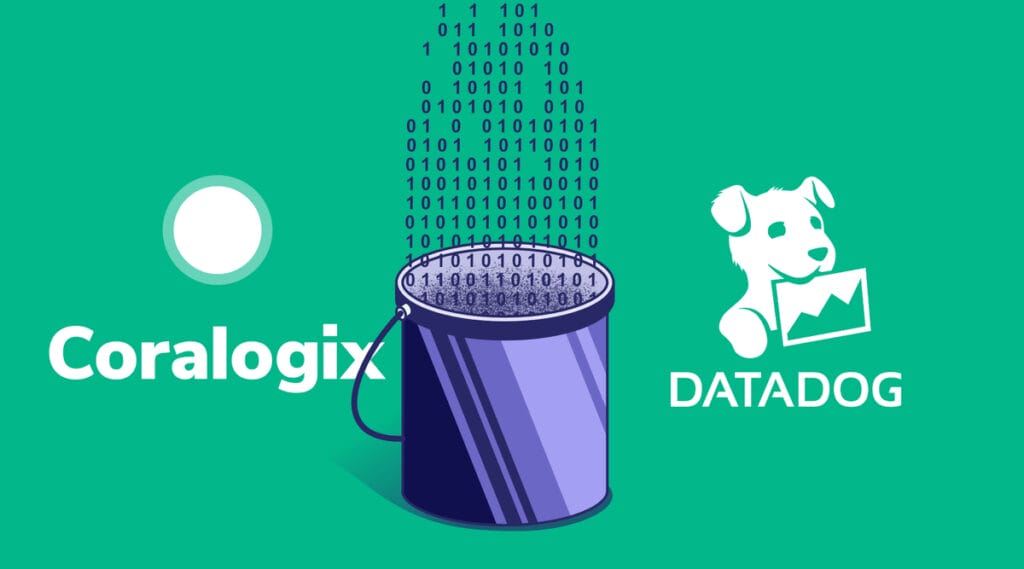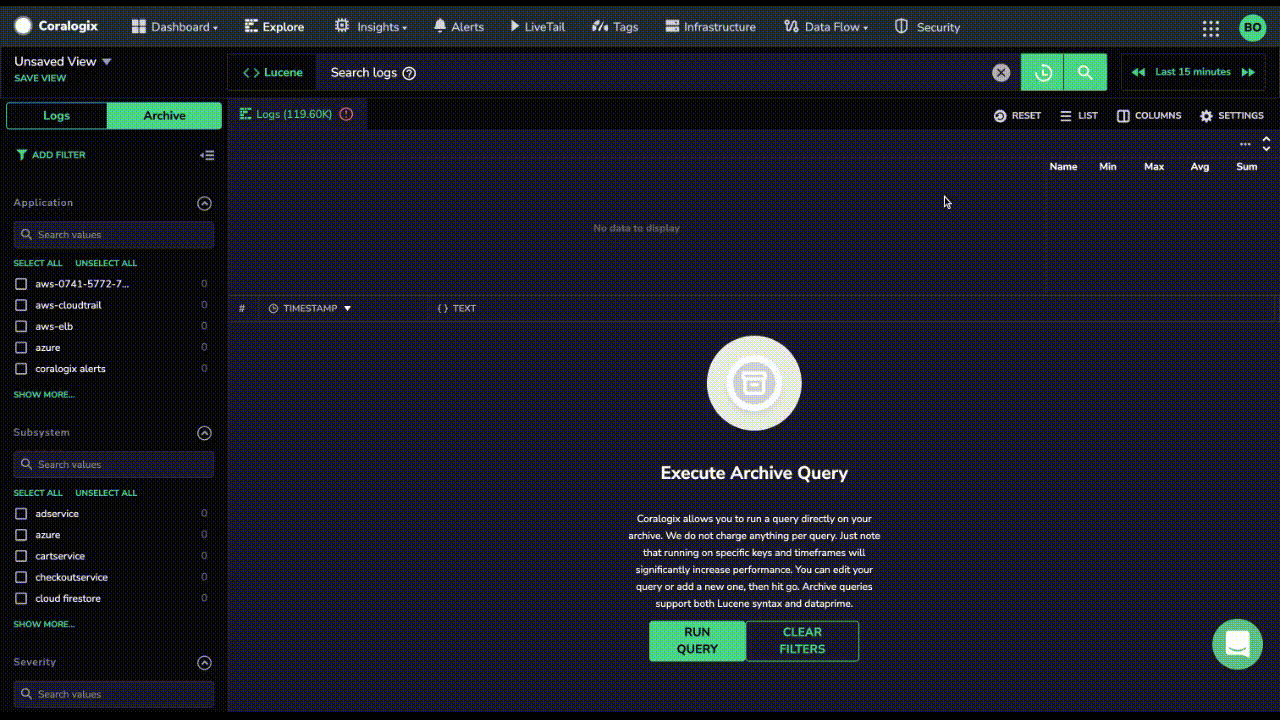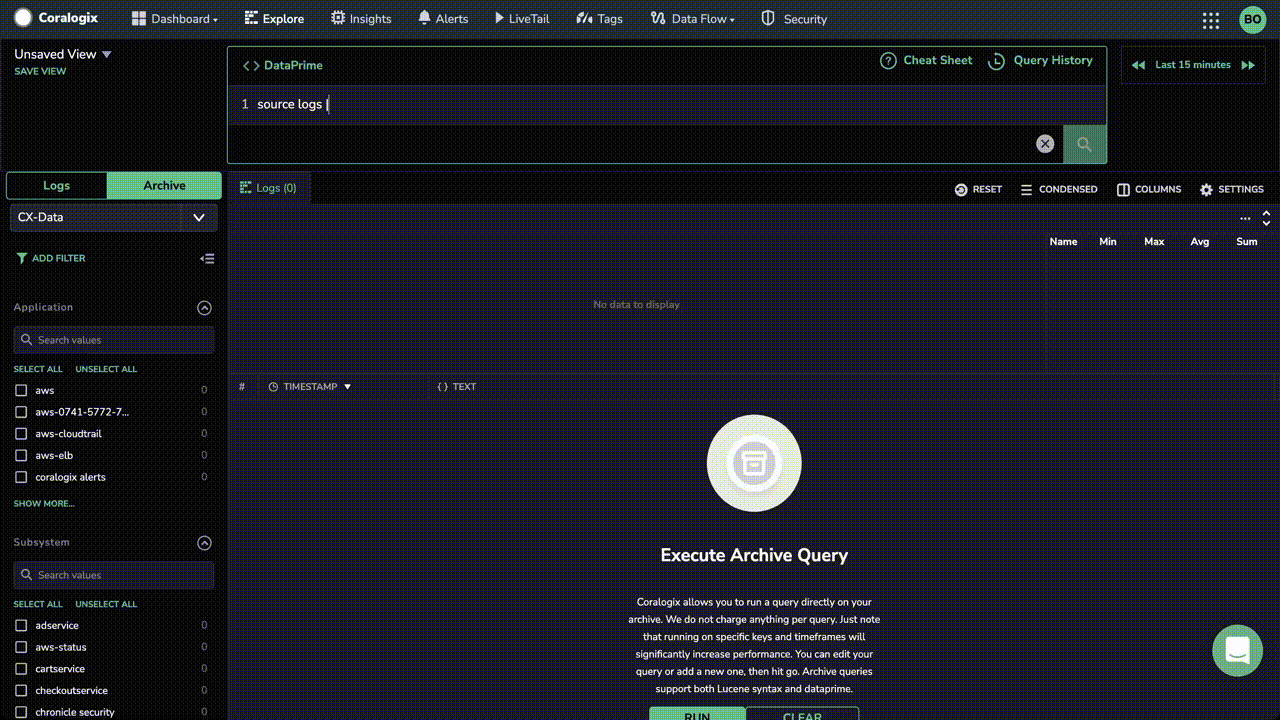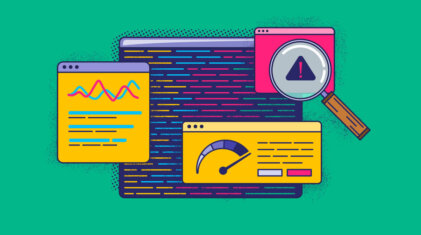A Guide To Container Security – Best Practices
With over 7.3 million docker accounts created in 2021, Docker’s popularity has seen a meteoric rise since its launch in 2013. However, more businesses using it…
Whether you are just starting your observability journey or already are an expert, our courses will help advance your knowledge and practical skills.
Expert insight, best practices and information on everything related to Observability issues, trends and solutions.
Explore our guides on a broad range of observability related topics.


Long-term storage, especially for logs, is essential to any modern observability provider. Each vendor has their own method for handling this problem. While there are numerous available solutions, let’s explore just one – Coralogix vs DataDog – and see the benefits and limitations.
Coralogix already outpaces Datadog in support, with 30-second response times, and cost, where customers regularly experience 40-70% cost reductions, and logs are no exception.
DataDog has released its feature, named “Logging without Limits” that enables users to store their logs in their own cloud storage, for example, S3. This allows them to archive logs in very low-cost storage, enabling them to retain more logs without hugely increasing costs. This is especially useful for teams with a large volume of logs and need to retain them for compliance issues.
Despite the title, there are some limitations. While logs are stored, they are not available for query. This means that if users ever need to use this data, for example, for compliance or historical analysis, they will need to rehydrate their data into DataDog. This has costs associated with it. While customers may initially save money when they archive their logs in DataDog, they’re merely delaying the cost of use rather than avoiding it altogether.
Our expert team ensures a smooth migration of your alerts, dashboards, and more
Coralogix Remote Query has an initial similarity with DataDog. They both utilize cloud storage in the user’s cloud account for cost-effective log storage. However, Logging Without Limits is ostensibly a log storage mechanism, but Coralogix Remote Query is a data analytics solution that contains all of the capabilities of DataDog, and more.
With Datadog, archive data is just that. It is sent to the archive with no further analysis or insight generation. However, data that is sent to the Coralogix remote archive can first be transformed and visualized. Just a few of these capabilities include:
When data is archived with DataDog, it must be rehydrated before it can be queried. This is the fundamental difference when comparing Coralogix vs DataDog. Coralogix enables Remote Query, which allows users to directly query their archived data, without re-indexing.
Coralogix Remote Query supports both schema on read and schema on write, allowing users to define their schema upfront for maximum query precision and optimization, or discover their unstructured data as they go.

The need to reindex data raises some serious questions:
At Coralogix, we don’t force users down a data reindexing strategy. Coralogix does have a reindexing capability, which users can use as they wish. Still, with our unique architecture and the power of Remote Query, this is required far less than with any other SaaS vendor.
Remote Query means users can easily discover their data at no extra cost. The only cost that the user incurs is their S3 hosting fees. Coralogix customers can issue as many queries as they like to their archive using Remote Query. This enables three key capabilities – discovering Coralogix Archive Data, holding less data in Frequent Search, and generating new insights via DataPrime.
With Coralogix, data can be explored, new insights can be garnered, and new intelligence can be gathered without the need to reindex. This means that teams can freely (literally) explore their data without worrying about overages or charges for indexing a huge volume of data from the archive. DataDog, with its requirement to reindex, does not have this capability.
Coralogix Remote Query can process a 10TB query in 10 seconds. It’s fast, up to 5x faster than AWS Athena. Many Coralogix users have realized that the significantly reduced cost and remarkable performance of Remote Query means they keep fewer indexed logs. This further reduces their costs while allowing them to explore more of their data than ever before.

Coralogix Remote Query doesn’t just allow users to pull the data from remote storage. They can also perform aggregations on their data using the DataPrime syntax (SQL and Lucene are also supported). This enables true data discovery and the ability to directly generate reports on archived data, instantly.
Our expert team ensures a smooth migration of your alerts, dashboards, and more
Whether it’s the feature-set, the price point, the analytics capabilities, or the performance, Coralogix wins on every count with long-term storage of observability data. The capabilities available as part of the Remote Query feature are entirely unparalleled in the industry. Because our unique and fundamentally different architecture drives them, many of our competitors are years away from meeting the standard that we have set.
If you don’t believe us, sign up for a free trial and try it for yourself.

With over 7.3 million docker accounts created in 2021, Docker’s popularity has seen a meteoric rise since its launch in 2013. However, more businesses using it…

Whether it’s Apache, Nginx, ILS, or anything else, web servers are at the core of online services, and web log monitoring and analysis can reveal a…

A Content Delivery Network (CDN) is a distributed set of servers that are designed to get your web-based content into the hands of your users as…